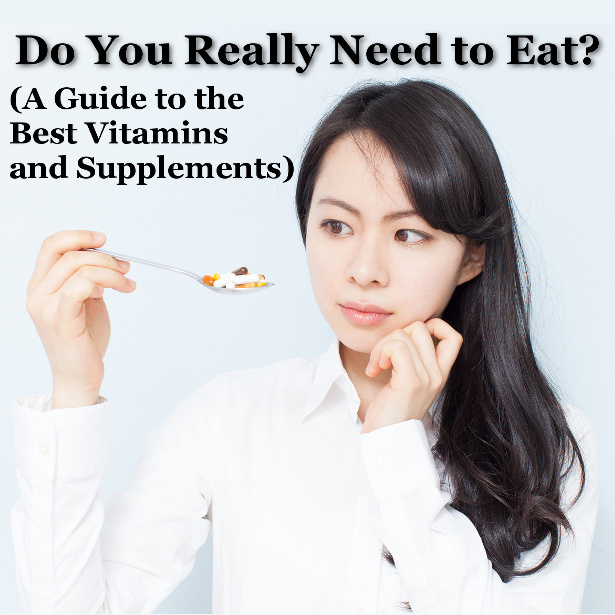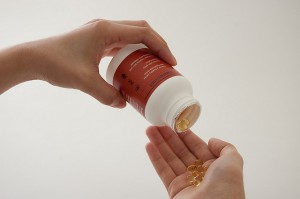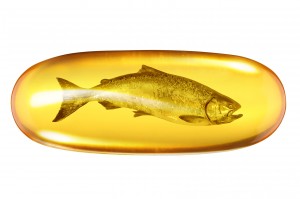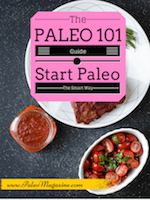Do you REALLY need to EAT? (A Guide to the Best Vitamins and Supplements)

Changing the way you eat is difficult. Lucky for you, then, that you can just take a multivitamin and never need to eat any actual foods, right?
It’s estimated that more than one-third of all Americans take a multi-vitamin on a regular basis.
Collectively, Americans spend over $3 billion per year on vitamins and other dietary supplements. This is a huge market, but most products are either unnecessary or ineffective or worse.
So obviously, you should avoid all supplements, right?
That’s an OK think to do I guess, but it’s not what I choose to do…
I Take Vitamins and Supplements.
There. I said it.
And I’m not even talking about any supplements I may have taken from time to time to treat a particular condition. (For instance, I’ve taken Adaptogens and Vitamin C when treating Adrenal Fatigue.)
Nope – I’m talking about taking supplements that aren’t treating any particular condition at all. It’s a conscious decision I’ve made, and it’s one that I support, based on a lot of research but also a lot practical experience, both myself and from observing others.
Doesn’t seem right on a Paleo Diet, does it? Since when did cave people have supplements, you ask?
But before I get to that, let’s get one thing straight.
I don’t know you, and I don’t know what’s best for you
Unless someone personally examines you and knows your history, there is zero way for anyone to know exactly which vitamins or supplements might help you most.
Here’s the question you really need to ask yourself: What you want your supplement to do for you?
Do you want to lose fat?
Do you want to add muscle?
Do you want to perform better in a sport?
There are uncountable but legitimate purposes for taking supplements, including specific medical reasons, but it’s pointless to take a supplement that somebody thinks is great for them if the reason they think it’s great is not one of your goals.
After all, supplements are often quite expensive.
I’m writing this post because so many people ask me what the best supplements are for them to take, but they don’t tell me first why they want to take a supplement. If you want to lose weight, then the supplements that will benefit you are different from supplements that a bodybuilder often takes.
Also, know your own risk-tolerance. When it comes to supplements, my risk tolerance is fairly low, but it’s not zero. On the other hand, I know people who have a very high tolerance for testing things on themselves. I love those people, because I get to see results before I try anything.
But I’m not one of those people, and you may not be either.
The Quick Case For and Against Vitamins and Supplements
 There is a laundry-list of reasons you may not want to take any supplements, including all of the following:
There is a laundry-list of reasons you may not want to take any supplements, including all of the following:
- Side Effects
- Potential Toxicity
- Waste of Money
- No Need
For me, the first 2 reasons are the most persuasive. If I believe that a supplement may have adverse side effects that I don’t desire, or if the chances are too great of potential toxicity, then I won’t take it, or I’ll take it in very small doses at first.
However, I don’t think any of these reasons are an argument against ALL supplements. I analogize it to medicine. Antibiotics, for instance, can have a lot of adverse consequences, but if I’m dying of a bacterial infection, I’ll take any antibiotics that I believe will save my life.
Supplements usually won’t give you that kind of payoff, but the risks are also usually lower.
In other words, it’s a case-by-case analysis.
What I don’t approve of is dismissing all supplements simply because they’re not “natural” or didn’t exist millions of years ago. But you probably know that about me already.
Whole Foods versus Dietary Supplements
Many people (including some Paleo nutritionists and bloggers) take every possible chance to lambaste anything other than whole foods.
And I agree that there are a lot of good reasons why you should try to get as many nutrients as possible from whole foods.
However, very few of us eat a fully balanced or nutritionally optimal diet (I most certainly don’t).
You probably already know that your diet may be less than perfect. You probably also suspect that supplements might help you to fulfill your body’s nutritional needs.
Obviously, I don’t know what specifically what your reasons are for taking supplements, nor do I know if you’re deficient in anything. It’s obvious then, that no one can give you a comprehensive or personalized list without answering those questions.
My List of the Best Vitamins and Supplements
Here’s what I’ve done.
I’ve come up with a list of supplements that I believe are important and/or beneficial to a majority of individuals for the most common health goals (losing fat, gaining muscle, and generally having more energy/being less tired). I’m leaving out anything to do with illness, which is a whole other topic.
This list includes both whole-food supplements AND non-whole-food supplements.
Without further ado…
1. Omega-3 Fatty Acids
 Recommended Form: Fermented Cod Liver Oil or Carlson’s Cod Liver Oil.
Recommended Form: Fermented Cod Liver Oil or Carlson’s Cod Liver Oil.
In the US, very few people get enough Omega-3s.
Seafood isn’t eaten often enough, and consumption of organ meats from pastured animals has gone way down. And those are the primary places you’ll get Omega-3 Fatty Acids in your diet. (NOT in things like flax and chia seeds, which don’t convert well at all to the types of Omega-3 that our bodies need.)
To make a long story a bit shorter, our body can produce many types of fat on its own. But it produces almost no Omega-3 fats.
In addition, if we get too little of one type of fat, our body is generally capable of using a different type of fat in place of the missing fat. If our bodies couldn’t create that fat or substitute a different fat, we’d be in a world of trouble.
However, continuously substituting one fat for another causes our body to behave/perform differently than is optimal. In the case of Omega-3 fats, this happens quite often as a result of modern diets.
Ideally, humans should ingest almost as much Omega-3 fats as Omega-6 fats. However, modern diets rarely have 10% as much Omega-3 fats as Omega-6 fats for the following reasons: modern diets (i) tend to include less seafood, (ii) almost always include fewer organ meats, and (iii) include far more Omega-6 fats from grain and corn (including from cattle and other livestock fed grain and corn).
Because of this disparity, our bodies routinely use Omega-6 fats in place of Omega-3 fats for a variety of functions, such as building cell membranes. In the short run, this is excellent news, since we constantly need to produce new cells. In the long run, this wreaks havoc on our bodies, causing problems such as certain cells being less able to move nutrients in and out.
Added Benefit: Apart from Omega-3 fats, Cod Liver Oil is also high in Vitamin D and a few other nutrients. In addition, if you’re set on sticking to whole-food supplements, fermented cod liver oil is it and has been used for a very long time. I can’t stand the taste of it, though, so I use the lemon-flavored oil from Carlsons.
2. Multi-Vitamin
Recommended Form: Source Naturals Life Force Multiple
Be honest with yourself.
What are the chances that you’re getting even the recommended dietary minimums of most vitamins and minerals. (And remember that those are minimums and not optimal levels.)
When I’m at my best – cooking every day with access to fresh veggies and pastured meats and wild seafood – I’m probably getting pretty close. But I’m not often at my best in that regard. I travel and sometimes I just don’t prioritize it enough.
And yet, I know that my body functions best when I’m not severely deficient for a long period of time in any vitamin or mineral.
There have been quite a few studies claiming that multi-vitamins might be bad for us. I’ve read most of them, but I’ve yet to see one that actually got anywhere close to proving that.
To the contrary, many of the studies prove the exact opposite (that multivitamins have a variety of benefits).
I could (and might) write a whole other post on everything that should be included in a good multi-vitamin, but the ones I listed above have just about everything you would need.
How to Use Grass-Fed Beef Liver: Obviously, you can buy beef liver, cook it, and eat it. That’s what I do most of the time (and as an added plus, it’s pretty cheap). However, you can also cube it (cut it into small cubes), freeze it, and then swallow a couple cubes every day. There’s almost nothing in the world as nutritious as grass-fed beef liver, and it’s clearly a whole food. Still, I can’t always get liver, so I often supplement with the multivitamin (Source Naturals) I linked to above.
3. Magnesium
Recommended Form: Doctor’s Best High Absorption Magnesium or take Epsom Salt Baths
There are a variety of reasons that we don’t seem to be getting as much magnesium as we used to. It could be that our soil is more depleted, it could be that pesticides chelate the magnesium out of our bodies, or it could be something we’re not even thinking about.
Whatever it is, though, most of us are at least slightly deficient. And magnesium is a critically important mineral that typically won’t fit into multi-vitamins in sufficient amounts.
Among other things, magnesium is responsible for regulating blood pressure and heart rate, for strengthening bones (together with calcium), relaxing muscles, and for allowing your body to properly use (metabolize) carbohydrates through partial regulation of insulin. Because of all these functions (and more), magnesium can help reverse osteoporosis, reduce the risk of cardiovascular diseases and strokes, and help manage diabetes. In addition, it can help treat general muscle pain and fatigue, migraines, insomnia, depression, and anxiety.
That’s a laundry list of positive benefits, and the risk of toxicity is quite low unless you’re taking a ton of it. I supplement every single day.
4. Selenium
Recommended Form: Brazil Nuts
Omega-3 fats are one of the most-touted benefits of eating more seafood. While Omega-3s are very important, the health benefits we see from seafood may actually come more from Selenium, a mineral prevalent in most seafood.
As a little-known fact, mercury poisoning is actually the process of binding selenium and selenium-derived enzymes inside of our bodies, which means that if we’re getting more selenium than mercury in our foods, then the risk of mercury poisoning is non-existent.
In addition, Selenium can help treat thyroid conditions and serves as the most powerful anti-oxidant in our bodies, preventing all sorts of damage.
You can obviously go out and eat a lot of seafood to get your selenium, but the easier way is to eat a handful of brazil nuts every day.
5. Protein
Recommended Form: Nature’s Best Isopure Whey Protein Isolate (unflavored), although many other pure protein powders will suffice.
I’m the only person who will ever put protein on any list of ‘Most Important Supplements’. Most of us get what would be considered “enough” protein in our diet alone (and I’ll leave the debate as to the “optimal” amount of protein for another day). Here are the reasons though, that protein is awesome as an occasional supplement:
a. Convenience: If you need a quick meal or snack, making a shake with protein powder is way healthier and will keep you full for longer than most other snacks.
b. Complete Amino Acids: Although most of us get enough protein, we don’t always get completely all of the amino acids that make up different proteins. A good protein powder gives you everything.
c. Gaining Muscle: If you’re trying to gain muscle ever, you’re going to need extra protein and calories. Protein powder is an easy way to do that.
Now – I used to use protein powder a lot. I don’t use it all that much any more, because I’ve gotten into what I think are better habits of eating meals with whole foods. After all, protein powder only has protein – no other nutrients.
In other words, I don’t think anyone outside of bodybuilders needs protein powder. But it can be useful in certain circumstances.
Getting Hungry?
That’s my list, and it’s probably not making you hungry in the same way it would if I were talking about whole foods and whole meals.
That’s a good thing.
Supplements are and should be just that – supplements.
You should try to get everything you can from your food. For reasons we still don’t fully understand, the human body appears to absorb and use nutrients from whole foods much better than nutrients from capsules or powders.
The same things work that have always worked. Eat real food. Move around a bit. Sleep a lot. And supplement only because everything else is never perfect.
Images: Copyright (c) blanche from Fotolia and Colin Dunn cc

